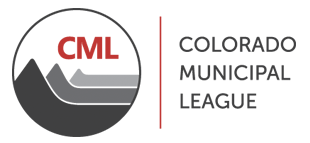Finding Equitable Ways to Assess and Reform Fines and Fees
In This Section
CML Newsletter
April 26, 2019
The National League of Cities (NLC) is assisting six member cities with assessing and reforming their use of local fines and fees and develop equitable collections strategies as part of the new Cities Addressing Fines and Fees Equitably (CAFFE) technical assistance and grant initiative.
The City of Aurora was one of those chosen for the CAFFE cohort.
Whether triggered by courts, unpaid bills for city or town services, or other administrative actions, municipal fines and fees can impose a crushing burden on low-income residents. Aggressive debt collection practices can further exacerbate the financial strain on low-income residents.
Cities and towns frequently miss key opportunities in their current approaches to fines and fees — residents who are unable to pay fines and fees often struggle with other debt and financial burdens and may not be aware of financial empowerment services available to them in their communities.
NLC’s CAFFE initiative will assist cities with implementing innovative financial empowerment approaches to help residents who are in debt to cities as a result of municipal fines and fees. NLC will also draw upon lessons from its LIFT-UP program, which successfully assisted cities in reducing residents’ water utility debt.
With support from JPMorgan Chase and Co., NLC is providing the six cities with grants and technical assistance to assess their fines and fees structures within at least one of their municipal collections entities; learn new ways to reduce inequities in how fines and fees are imposed; and make program or policy changes that lead to a new collections model for the city, connecting residents in debt with services that improve their financial health.
Cities also will have the opportunity to learn from the experiences of San Francisco’s Financial Justice Project (sftreasurer.org/financialjustice) and its work to assess and structurally reform how fines and fees impact low-income residents.
Click here or additional information about the CAFFE project or contact Denise Belser at 202-626-3028 or belser@nlc.org.
